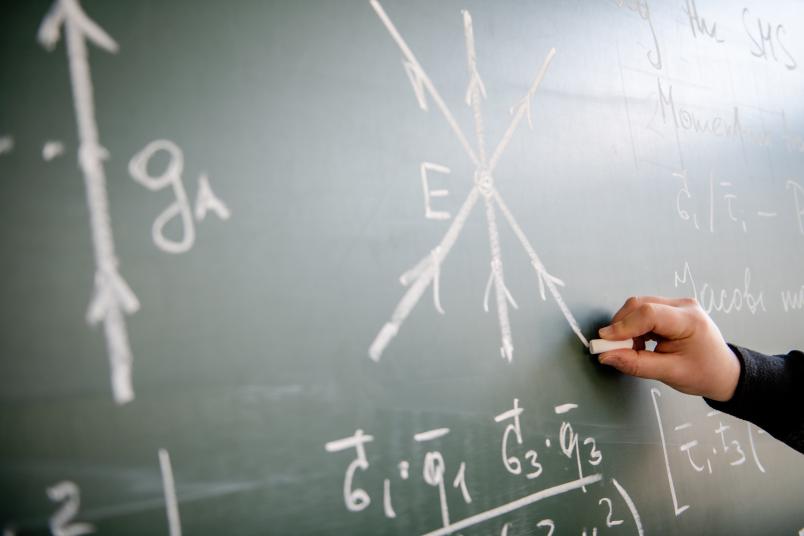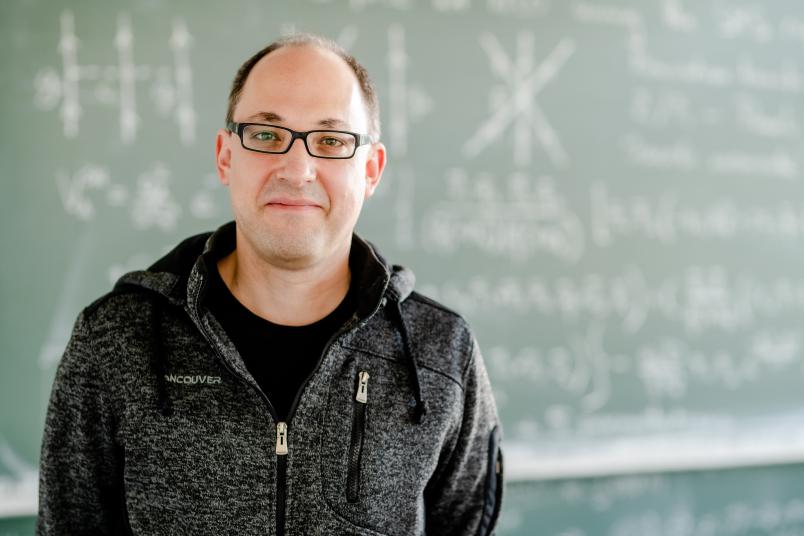Nuclear and particle physics
ERC Advanced Grant for strong interaction research
We generally take for granted that the particles inside atomic nuclei stick together. However, the interactions between the nuclear constituents are, for the most part, not fully understood.
Professor Evgeny Epelbaum’s goal is to understand the forces inside atomic nuclei. For his theoretical research in nuclear and particle physics, the Bochum-based researcher has received an Advanced Grant from the European Research Council (ERC). In the project “Nuclear Theory from First Principles”, the Chair of Theoretical Physics – Hadron and Particle Physics at Ruhr-Universität Bochum plans to use theoretical methods to describe three-particle forces acting between nuclear constituents. The grant is endowed with 2.5 million euros.
Strong interaction holds nuclear constituents together
“More than 99.9 per cent of the mass in the visible universe is concentrated in the atomic nuclei,” says Evgeny Epelbaum. They consist of protons and neutrons, which together are also known as nucleons. The nucleons in turn are made up of even smaller building blocks, namely quarks and gluons. They are governed by so-called strong interaction, a fundamental force that ensures the cohesion of the quarks and gluons inside nucleons and determines their properties. However, the strong interaction does not only occur between quarks and gluons within a single nucleon. It also acts between the building blocks of different nucleons. Thus, the strong interaction is also responsible for the forces between nuclear particles.
“If we want to be able to predict the properties of atomic nuclei, for example their mass or charge distribution, we have to understand the interaction between nucleons,” explains Epelbaum. “This is also relevant for fundamental questions, such as how the elements of the universe are formed or how stars develop.”
So far only two-nucleon forces understood
Pairwise interactions between two nucleons are already relatively well understood. This enables physicists to describe what is going on inside the simplest atomic nucleus, i.e. one that consists of two nucleons. The opposite is true for more complicated atomic nuclei consisting of three or more nucleons. Here, the interactions are still a mystery. “Even for systems consisting of only three nucleons, there are big differences between experimental findings and theoretical predictions,” points out Evgeny Epelbaum.
This is where research in the framework of his ERC Advanced Grant comes in. Epelbaum and his team hope to describe the forces acting in a system of three or more nucleons. To this end, the researchers are using a theoretical method known as effective field theory, which is widely used in particle physics. With this approach, the Bochum-based group already described precisely the interactions between two nucleons in the past. Now, they intend to extend the approach to three-particle forces.
Resolving the discrepancy between theory and experiment
Based on the theory developed under the ERC Grant, the team also wants to analyse the existing experimental data for the three-nucleon system, with the aim of resolving the long standing discrepancies between theory and experiment. Moreover, numerical simulations are planned for more complex nuclear systems, which consist of even more particles, in order to explore relationships between the nuclear forces and their properties. Such simulations also provide insights into areas that are not accessible to experimental research. For example, it is possible to explore how the properties of atomic nuclei or processes in the stars depend on the constants of nature – such as the masses of quarks.

